WU’s global network of partner schools spans 5 continents and 56 countries. We maintain an active exchange of students and faculty with these partner institutions, participate in research partnerships, and develop cooperative academic programs like Joint International Summer University programs, double degree programs, the Vienna Innovation ProgramWU, and the new Central Europe Connect Joint Certificate Program.
Membership in leading university networks
In a globalized world, active participation in international networks helps give us new perspectives on our work as a university. A spirited exchange of ideas with renowned universities provides us with impulses for our own continuous development.
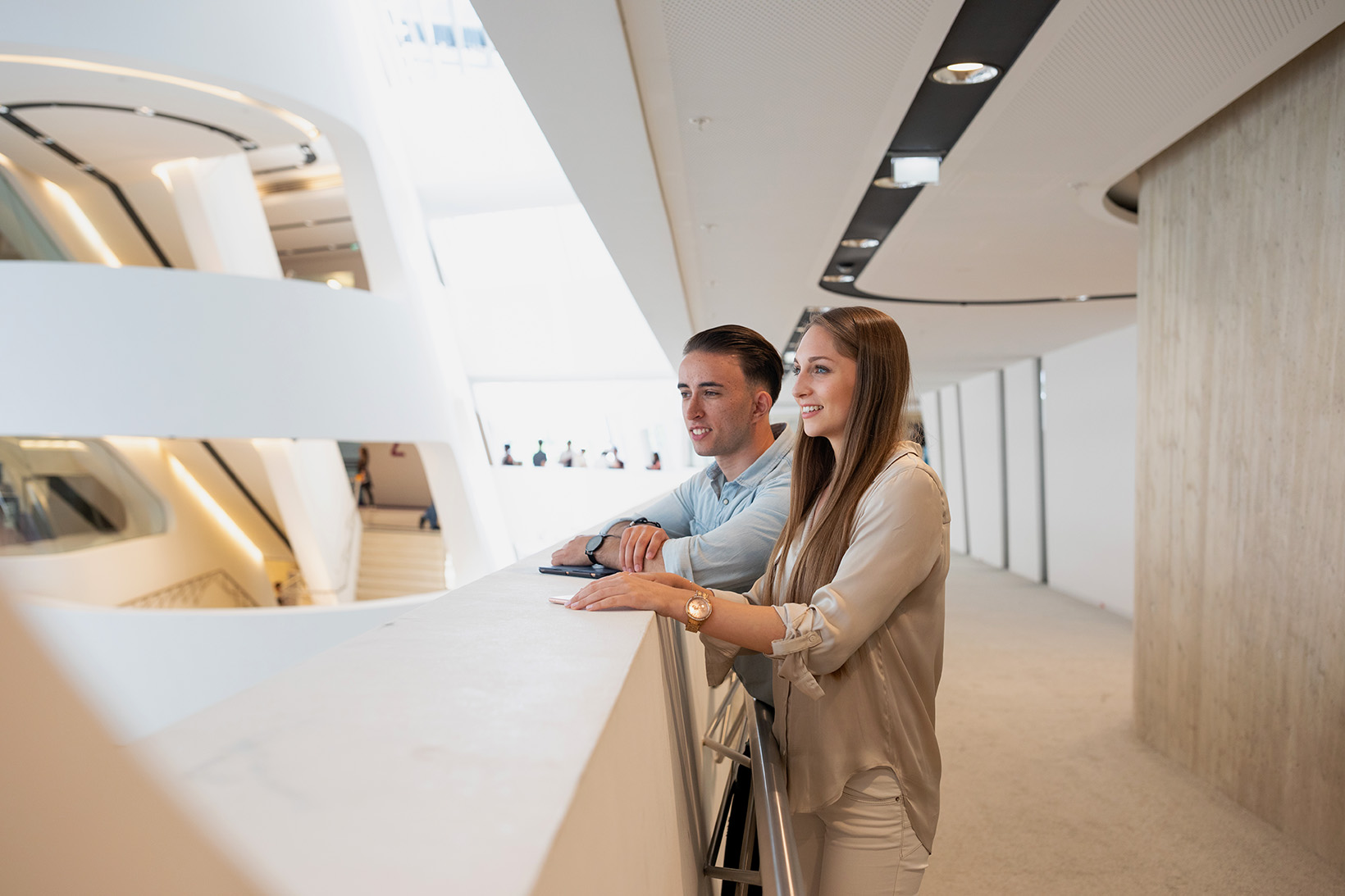
Principles for Responsible Management Education (PRME)
PRME is an organization that has been acting as an international task force since 2007, developing a platform to foster responsible and sustainable practices in management education. WU defines itself as a responsible university and uses the 6 principles set out by PRME, which are based on the UN Global Compact, as points of orientation for its work. The principles offer guidelines for integrating sustainability and responsibility into the training provided to future executives. WU has already implemented these guidelines in a number of areas.
In its teaching, WU’s goal is to teach its students about the social and ecological contexts and impacts of business activities. Graduates should have the expertise necessary to think and act sustainably.
Many of WU’s institutes, research institutes, and competence centers deal with research on sustainability and social responsibility. They are involved in constant discourse with researchers, the media, and political decision makers. Knowledge generated by our research is of course also included into WU’s teaching, making it accessible to students.
With its state-of-the-art campus, WU sets new standards in university architecture, green operations, and workplace design. We are working hard to keep the university’s ecological footprint as small as possible, while maintaining a high-quality working and studying environment.
WU has a strong network in the field of sustainability and contributes actively to academic and social discourse in this area.
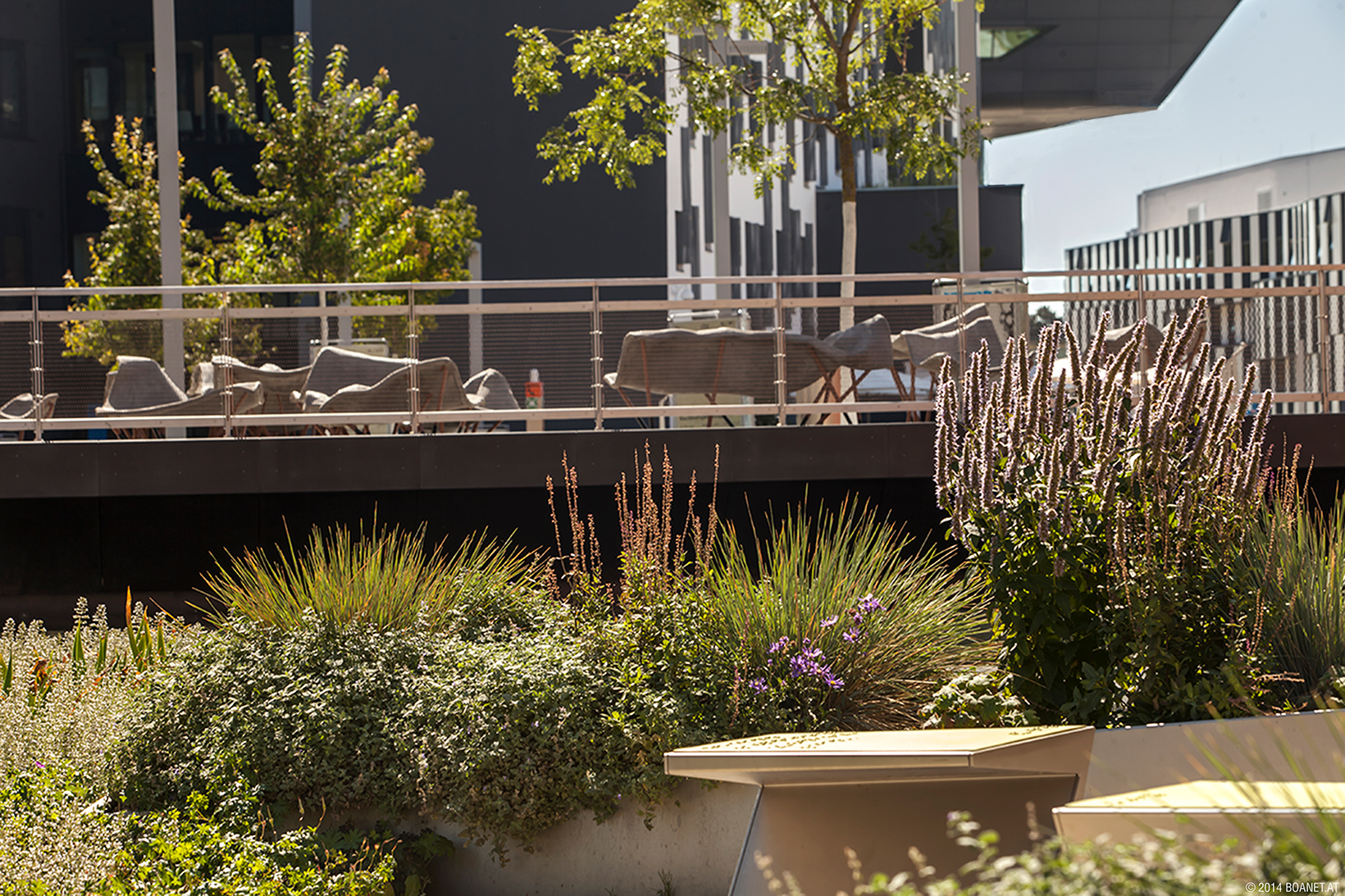
The Global Alliance in Management Education (CEMS)
The CEMS network was established in 1988 by leading business and economics universities (Bocconi University, ESADE, HEC Paris, and the University of Cologne) with the goal of providing students with the training and education they need to lead multinational and multicultural organizations. WU has been a member of this network since 1990.
Over 30 partner universities on all continents of the globe make up the CEMS network. CEMS also cooperates with over 70 Corporate Partners (mostly multinational companies) and 7 Social Partners (NGOs). Approximately 1,300 students from 70 different countries are enrolled in the Master in International Management degree program in any given year, and the program’s 15,000 alumni are employed in over 75 countries around the world.
WU is the only CEMS partner school in Austria and offers the CEMS program as an integral part of the Master’s Program in International Management. WU’s CEMS/MIM program is among the best worldwide: The Financial Times’ Global Masters in Management ranking listed it at 9th place in 2019, and it ranked at an outstanding 5th place in The Economist’s Masters in Management ranking.
Within the CEMS network, the high quality of WU’s Master in International Management is recognized with prizes and awards on a regular basis. At the CEMS Annual Events, which took place at WU in 2019, prizes are awarded to the best universities and teachers. This year, WU was nominated in almost all categories, and the award in the category of Global Management Practice went to a course held by Günter Stahl. Phillip Nell took second place in the category of Global Strategic Management. For their work on the Climate Change Course and Model UNFCCC, Clive L. Spash and Viviana Asara won the Outstanding Contribution Award, a prize given in recognition of particularly important contributions to the CEMS MIM program. WU took 2nd place in the CEMS School of the Year category. The CEMS Club Award, the prize for the best CEMS student organization, went to the CEMS Club Vienna in the 2018/2019 winter semester.

Partnership in International Management (PIM)
Founded in 1973, PIM is an association of renowned business schools. The 66 members are recognized as leading providers of higher education in business and economics in their respective regions. WU is the only Austrian university to belong to this exclusive network.
The network’s goal is to foster cooperation between members, especially by creating joint academic programs and encouraging student mobility between member schools. Over 80% of the member schools are WU partner universities.
In the 2018/19 academic year, 315 WU students (151 bachelor’s/164 master’s level) chose to go to a PIM member school on international exchange, and 316 incoming exchange students from PIM universities came to WU for a semester. Numerous students from PIM partner schools also attended the International Summer UniversityWU program and the Vienna Innovation Program.
International Legal Network of Excellence (THEMIS)
The THEMIS network focuses on international business law and is a joint initiative of 12 international universities. All of these schools offer the THEMIS Certificate in International and Business Law program, which consists of 3 parts: an exchange semester abroad, an internship, and a seminar. 13 WU students participated in the THEMIS exchange program in the 2018/19 winter semester.
Members of the THEMIS network:
- City University of Hong Kong
- ESADE, Barcelona
- Freie Universität Berlin
- Maastricht University
- National Taiwan University
- Singapore Management University
- Bocconi University, Milan
- Université Paris-Est Créteil Val de Marne
- University of St. Gallen
- Universidade Nova de Lisboa
- Victoria University of Wellington
- WU Vienna
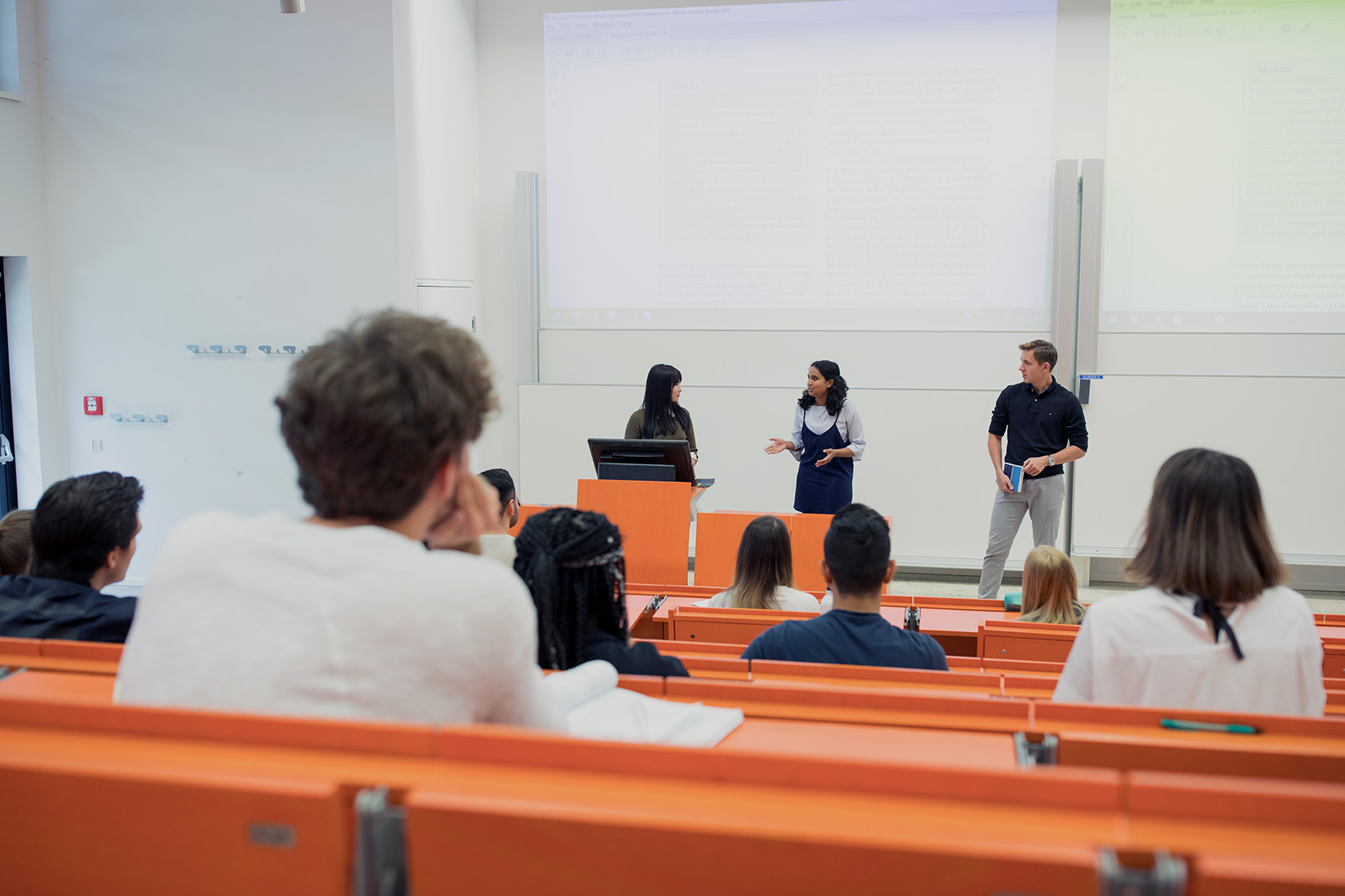
The Central European Exchange Program for University Studies (CEEPUS)
WU coordinates the AMADEUS network within the CEEPUS program. The AMADEUS network, with 16 partner schools in 12 countries, is one of the largest CEEPUS networks and was founded in the 1994/95 academic year. In 2018/19, CEEPUS gave 16 students from Central and Eastern Europe the opportunity to spend an exchange semester at WU, and 3 guest lecturers came to Vienna to share their expertise with WU’s students.
Austria-Illinois Exchange Program
WU has a particularly intensive exchange program with the University of Illinois at Urbana-Champaign. This cooperation gives WU students the opportunity to spend a semester in the USA at the University of Illinois at Urbana-Champaign. Currently, 22 places per semester are available, and students can choose between attending courses at Gies College of Business, the College of Liberal Arts and Sciences, or the College of Agricultural, Consumer and Environmental Sciences.
In return, large groups of students from Illinois come to Vienna to spend a semester at WU every year. In May, faculty members from Illinois held 2 courses at WU: “Principles of Marketing” (Mark Edward Wolters) and “The European Union and Governance” (Konstantinos Kourtikakis). The courses were also open for WU students to attend.
In late September 2019, a delegation from the University of Illinois at Urbana-Champaign, led by the dean of the College of Liberal Arts and Sciences, visited WU to discuss the further development of the partnership.
Network for European and US Regional and Urban Studies (NEURUS)
As a member of the Network for European and US Regional and Urban Studies (NEURUS), WU cooperates with partner schools in the field of urban and regional development. The program gives students the opportunity to spend a semester as a NEURUS Exchange Fellow, conducting research for their master’s or doctoral thesis at one of the partner universities. In 2019, one WU student went to the University of Illinois at Urbana-Champaign as part of this program.
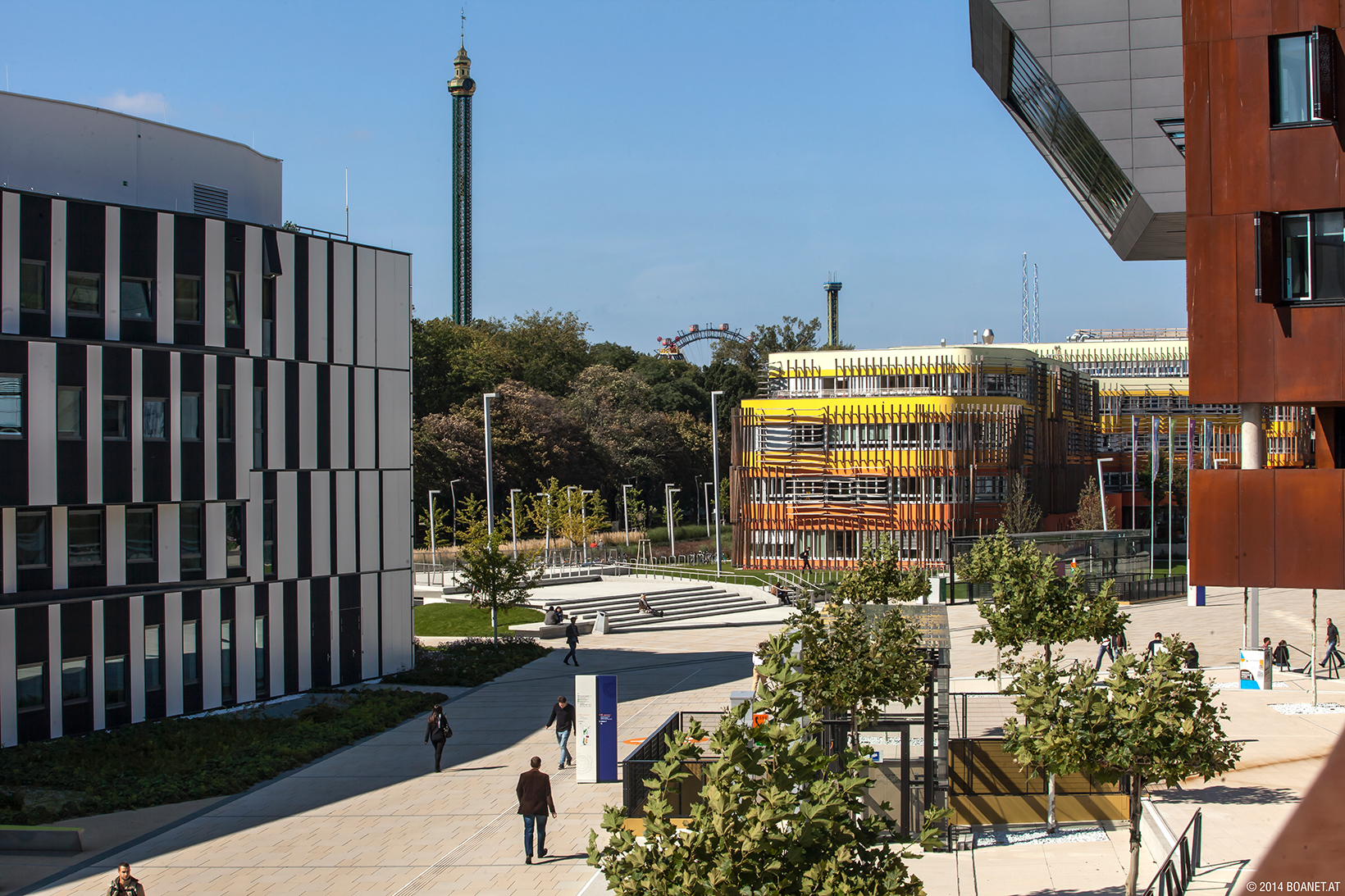
Global Business School Network (GBSN)
GBSN is a group of outstanding business and economics universities with the common goal of building up a solid, local management education network in developing countries. WU contributes actively to this initiative and has been offering scholarships to the International Summer UniversityWU for high-potential students from GBSN partner schools in developing countries since 2017. In the summer of 2019, 6 students from Egypt, Pakistan, Colombia, and Nigeria were selected to receive the scholarships.
WU’s Research Institute for Cryptoeconomics was involved in the GBSN Cross-Border Coffee Break webinar series. 100 faculty and staff members from over 70 universities logged in to find out more about the most recent research findings and the institute’s projects on blockchain technology.
Societal Impact and Global Management Alliance (SIGMA)
SIGMA is an international alliance of outstanding business and economics universities with a strong focus on multidisciplinary issues relating to social transformation and social responsibility in research and teaching. Aside from WU, the following schools are currently members of SIGMA: ESADE Business School, Fundacão Getulio Vargas, Hitotsubashi University, Renmin University of China, Singapore Management University, Université Paris Dauphine, and the University of St. Gallen.
A first cooperation, the SIGMA Joint Course on Sustainable Management, was launched at 6 member universities in 2018 and continued successfully in 2019. The 2019 annual meeting of the SIGMA Alliance was held at ESADE in Barcelona.
Allianz Nachhaltige Universitäten
WU is a member of the Austrian Alliance of Sustainable Universities, a group of 11 universities committed to sustainability-related topics. In 2019, one of the Alliance’s focuses was on education for sustainable development, an area in which WU was particularly involved.
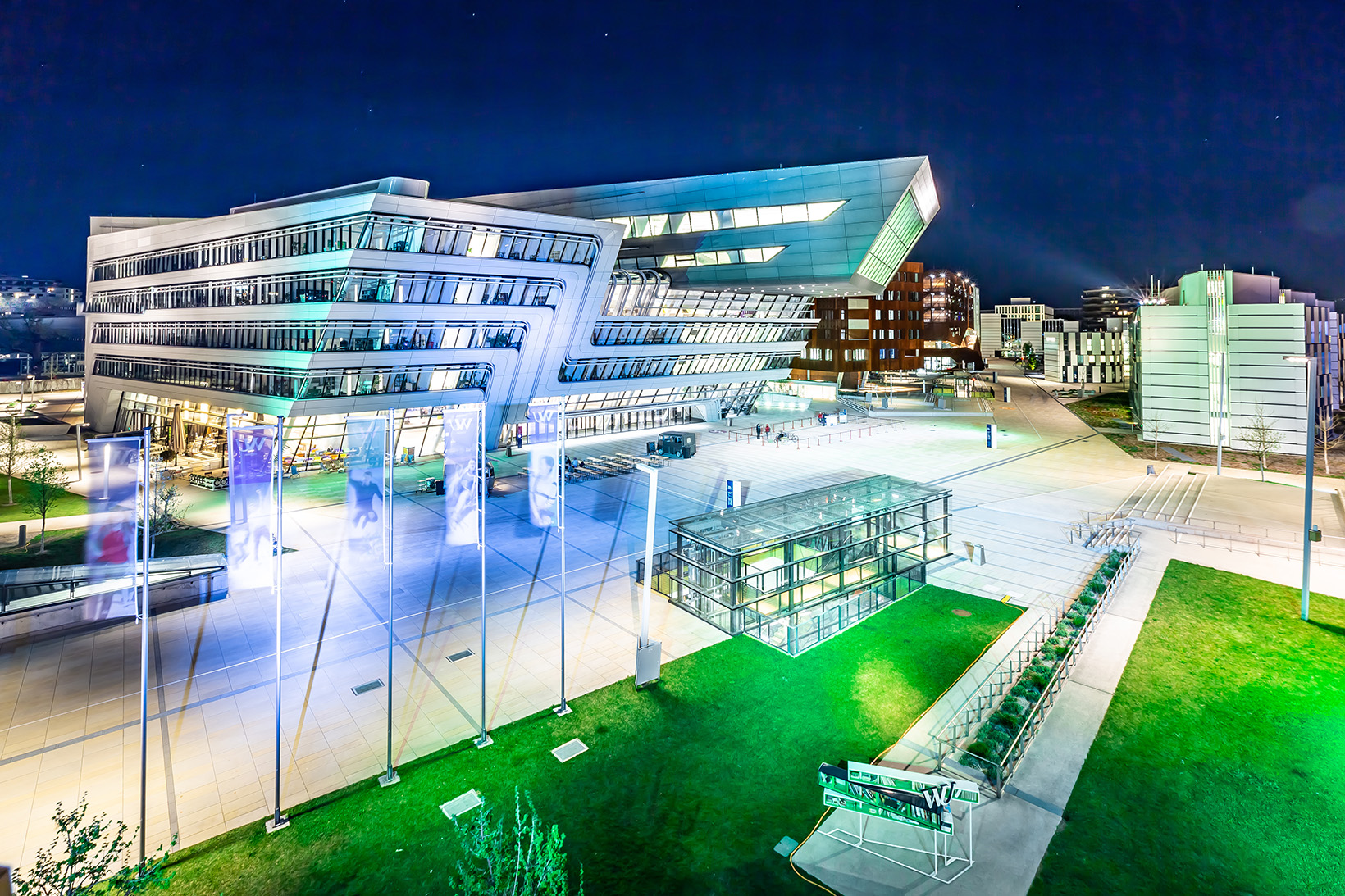
ALEUESS (Alliance of Leading European Universities in the Economic and Social Sciences)
12 leading European universities with a focus on economics and social sciences formed ALEUESS (Alliance of Leading European Universities in the Economic and Social Sciences) in 2018. Representatives of the universities met twice, in February and September 2019, to work out the details of the cooperation. In the area of teaching, bilateral exchange agreements and summer schools are planned, as well as a common digital learning platform. In research, communication between researchers from members of the ALEUESS network will be strengthened. The following universities are members of the network:
- Central European University (Vienna, Austria)
- European University Institute (Florence, Italy)
- Interdisciplinary Center Herzliya (Herzliya, Israel)
- London School of Economics and Political Science (London, UK)
- Sciences Po (Paris, France)
- Stockholm School of Economics (Stockholm, Sweden)
- Tilburg University (Tilburg, Netherlands)
- Bocconi University (Milan, Italy)
- Pompeu Fabra University (Barcelona, Spain)
- University of Mannheim (Mannheim, Germany)
- Toulouse 1 Capitole University (Toulouse, France)
- WU

